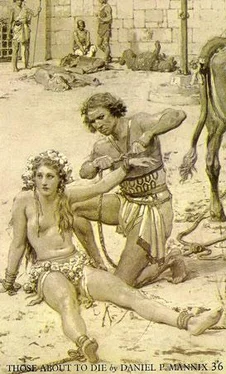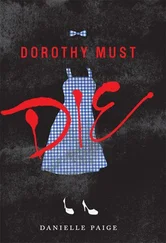Daniel Mannix - Those About to Die
Здесь есть возможность читать онлайн «Daniel Mannix - Those About to Die» весь текст электронной книги совершенно бесплатно (целиком полную версию без сокращений). В некоторых случаях можно слушать аудио, скачать через торрент в формате fb2 и присутствует краткое содержание. Год выпуска: 1972, ISBN: 1972, Издательство: Mayflower Books Ltd, Жанр: Исторические приключения, на английском языке. Описание произведения, (предисловие) а так же отзывы посетителей доступны на портале библиотеки ЛибКат.
- Название:Those About to Die
- Автор:
- Издательство:Mayflower Books Ltd
- Жанр:
- Год:1972
- ISBN:978-0583121347
- Рейтинг книги:4 / 5. Голосов: 1
-
Избранное:Добавить в избранное
- Отзывы:
-
Ваша оценка:
- 80
- 1
- 2
- 3
- 4
- 5
Those About to Die: краткое содержание, описание и аннотация
Предлагаем к чтению аннотацию, описание, краткое содержание или предисловие (зависит от того, что написал сам автор книги «Those About to Die»). Если вы не нашли необходимую информацию о книге — напишите в комментариях, мы постараемся отыскать её.
Those About to Die — читать онлайн бесплатно полную книгу (весь текст) целиком
Ниже представлен текст книги, разбитый по страницам. Система сохранения места последней прочитанной страницы, позволяет с удобством читать онлайн бесплатно книгу «Those About to Die», без необходимости каждый раз заново искать на чём Вы остановились. Поставьте закладку, и сможете в любой момент перейти на страницу, на которой закончили чтение.
Интервал:
Закладка:
The Germans were armed with their national weapon: short javelins. They had no armour but wore heavy bearskins as protection. However, they outnumbered the gladiators sent against them two to one. Still, the highly trained gladiators didn't have much trouble except with one man. He was a Norseman, a giant with long blond hair and beard. He was fighting with an enormous two-handed sword. He killed two gladiators, cutting off their heads in spite of the gorget that protected their necks. He got such a hand that the fight was stopped and the Norseman promised his freedom. The applause went to his head for he insisted on making a speech to the crowd in broken Latin. The Norseman said that he'd killed six legionnaires in battle before he was captured, that the Romans were all yellow-bellies and one Norseman could handle a legion of them, and that he could personally lick any man in the crowd. The crowd were sportsmen enough to admire his nerve and applauded, but in the stands was a young officer whose father had been killed fighting the Germanic tribes. This fellow didn't like Nordics and he jumped into the arena and challenged the Norseman to fight.
The Norseman accepted and as this was obviously a real grudge match, the crowd was all for it. Not having any arms with him, the officer borrowed Flamma's armour and sword. Then he and the Norseman went to it.
The combatants were so evenly matched that there was ' none of the usual shouting and cheering from the stands; the crowd held its breath, watching every move. There was no sound in the giant amphitheatre but the clash of the swords. In spite of his armour, the young officer had counted on being quicker than the big Norseman in his cumbersome bearskin but the Norseman displayed an amazing and unexpected agility. Twice he beat the Roman to his knees and only a miracle saved the young man. Then the Roman leaping back to avoid a stroke from the great two-handed sword, slipped in a pool of blood. He went down and the Norseman straddled him, shortening his sword for the death stroke.
A gasp went up from the crowd, for it was all over now. Suddenly the prone man brought up his shield between the Norseman's legs. As the big man doubled up in agony, the Roman rolled away and, bounding to his feet, plunged his sword into his opponent's armpit where the heavy bearskin did not cover him. The Norseman went down while the crowd screamed in delirious excitement and the band played frenetically.
Naturally, all anyone remembered of that set of games was the young officer's brilliant victory, but Flamma was well content. He had disposed of his two Germans in a neat businesslike way and as an ex-soldier he had learned to do the job assigned to him and let it go at that. He greatly admired the young officer's feat and was proud that his armour and sword had been used, but he was only a gladiator and that sort of grandstand stuff could well be left to some red-hot young aristocrat with more guts than sense.
The lanista kept his eye on Flamma. He liked the soldier's way of fighting: nothing spectacular, but dependable. In the next few years, Flamma defeated Greek Hoplomachi in full armour and fighting with pikes, Dimachaeri with daggers in each hand and Andabatae on horseback. His usual opponents were Samnites who were equipped much like the Secutors. The Samnites were the first professional gladiators, because the big gladiatorial combats began shortly after the Samnite nation was conquered by the Romans and the prisoners were used as gladiators. For a long time, the words "gladiator" and "Samnite" were interchangeable, but as Romans conquered other nations, new styles of gladiators were constantly being introduced so the Samnites became simply one type of fighter. However, they never lost their appeal and might be called the "standard gladiator," all other sorts being more or less novelty acts.
Flamma was beaten a few times but was always saved by the crowd which gave the "thumbs up" signal that meant a fallen man was to be spared. Flamma, winning or losing, always put up a good fight and the crowd liked him.
There had been a lot of discussion exactly as to how the mob signalled their wishes. Until recently it was believed that "thumbs down" was the death signal and "thumbs up" meant the man was to live. Some authorities today think that the death signal was made by stabbing with the thumb at the spectator's own chest meaning "let him have it here" and the signal for release was to extend the hand flat with the thumb bent under the palm. Others think that the thumb was only used to signal death, that if the man was to be released the crowd waved their handkerchiefs. No one knows. Perhaps there were many different gestures and they went by fads; some being popular at one period and others at another.
Not being a flashy fighter, Flamma had a slow publicity build-up, but gradually people began to notice the big man who never went in for any grandstand plays but nearly always won. Some fighters put on a regular act like modern wrestlers —taking great swipes at each other, banging their shields around, pretending to fall, staggering as though they had received a mortal wound and then heroically returning to the fray. Again as with wrestling, there was often a "hero" and a "villain." The hero was usually some clean-cut young
Roman, often a freeman fighting for hire or some rich young wastrel who had run through his inheritance and turned to the arena as a last resort. The hero always got a careful build-up and was given a big ovation as he explained to the crowd that he was only fighting to get enough money to bury his father or support his widowed mother. The villain was a tough-looking brute who came out yelling insults at the hero, spitting at him, and promising to massacre the bum. The hero always won. Such fights naturally had to be fixed or the gladiatorial schools would have run out of villains.
The fights were by no means always staged. The crowd was pretty shrewd at detecting fakes and also it was hard to persuade a gladiator to throw a fight if he thought he could win because it would be up to his opponent whether to kill him or not, regardless of what previous arrangement might have been made. Still, up to the reign of Tiberius (or, roughly about 20 a.d.) there was a good deal of ‘ give and take' in the arena. A highly trained gladiator was a valuable man and knew it. An experienced gladiator wouldn't fight a tyro. Many of them openly expressed their contempt of the crowd and used to stop in the middle of a fight to cuss the people out, in the manner of Mr. Leo Durocher. They developed an enormous esprit de corps. A gladiator prided himself on bearing any wound without a cry and even when mortally wounded would shout to the lanista for instructions. The lanista was allowed to stand on the sidelines while his man fought, like a prize fighter's manager, and shout instructions. This was a great help to Flamma, who wasn't too smart and often needed someone to shout: "Try him with an upper-cut under the palette" (the shoulder-piece), and so on.
Slowly, by hard work and considerable luck, Flamma worked his way up to being one of the top gladiators in Rome. He never faked a fight, he always did his best, and he gradually won a following in the city. Sculptors made statues of him; his head appeared on coins as Mars, the god of war; he was wined and dined in wealthy homes and given an estate by a rich lady admirer. Crowds of women followed him around, and on street walls were scribbled: "Flamma is a girl's sigh and prayer" and "Oh you Flamma! You're the doctor who can cure what's wrong with me." He never did as well as the gladiator Spiculus who was given a palace by Nero, or Veianius whose son was made a knight, but Flamma wasn't complaining. He began to grow rich.
Читать дальшеИнтервал:
Закладка:
Похожие книги на «Those About to Die»
Представляем Вашему вниманию похожие книги на «Those About to Die» списком для выбора. Мы отобрали схожую по названию и смыслу литературу в надежде предоставить читателям больше вариантов отыскать новые, интересные, ещё непрочитанные произведения.
Обсуждение, отзывы о книге «Those About to Die» и просто собственные мнения читателей. Оставьте ваши комментарии, напишите, что Вы думаете о произведении, его смысле или главных героях. Укажите что конкретно понравилось, а что нет, и почему Вы так считаете.












